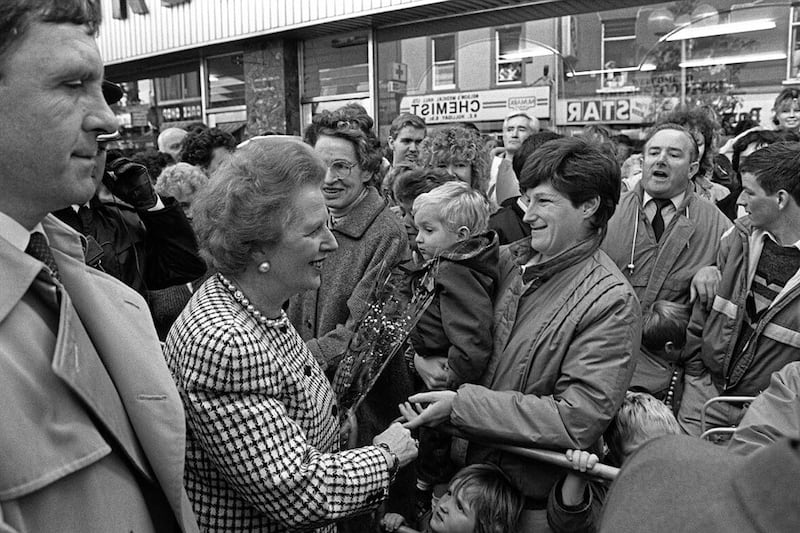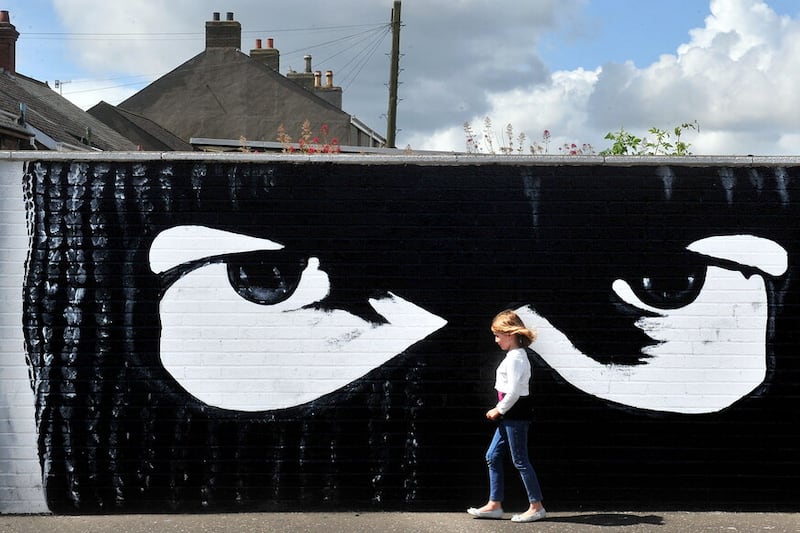A LONG time ago in the winter of 1985 an awful orange coloured Opel Ascona pulled up outside my family home.
It was the kind of typical grey Ulster day that students love for doing nothing. Allegedly I was home on study leave. In reality the damp and cold of my Eglantine Avenue digs was no competition for the heat of a Newry hearth.
The rusting bucket parked up and immediately caught my attention. The two men inside seemed unsure of whether or not to get out.
They were hard to make out because the windows of the car were clouded in smoke and condensation. The car exhaust seemed to exhale as much fumes as the driver.
Eventually the two emerged from the car and made their way towards our door. Even through the opaque marbled glass the frame of the larger man was unmistakeable.
There was that trade mark shock of white hair, the square jaw line and shoulders wide enough to be a scrum half. I opened the door wondering what this man wanted.
I thought he was lost. His wiry companion hovered. Ditching his cigarette into the garden the Ascona driver in a beaten up leather overcoat outstretched his hand and with gravel voice said: "Seamus Mallon - it's Tom isn’t it?'"
I knew who it was. I remember standing gormless at the door – until Mallon spoke again.
"Can we come in?'' Mallon and his Sancho Panza came in and three mugs of tea, a potted history of the SDLP struggle and six lungs full of pipe tobacco smoke later, I agreed to help produce literature for a by election which was to take place in January 1986. The rest they say is history and it was of the rollercoaster kind.
In two days Mallon, like me, will celebrate a birthday. His is a milestone one. He becomes an octogenarian.
It’s unlikely but he may reflect on the Book of Samuel as the author asks: ``I am now eighty years old. Can I distinguish between good and bad?''
If he does, his answer is likely to be an emphatic yes because Seamus Mallon has spent a life distinguishing between good and bad.
In recent interviews Mallon has admitted he finds it difficult to understand the trajectory of the nationalist electorate in the north and at times that has blunted his once legendary skills for political punditry.
When Mallon approached Westminster following his victory as a MP, he immediately proved he would be no mere plastic paddy – he quoted the words of Westminster Bridge by William Wordsworth to an Irish journalist:
"Dull would he be of soul who could pass by
A sight so touching in its majesty.''
In his maiden speech he eloquently referenced Navan Fort, Dan Winter’s cottage, the two symbols of Christianity in Armagh – the cathedrals - and reminded members of the civilization of south Armagh through its poets that existed when most of London was still farmland.
More importantly he latched onto a theme which has been a constant for him throughout his political life, quoting Spinoza and not for the last time, he said: "Peace is not just an absence of war, it’s a state of mind, a disposition for benevolence.''
They may not like to hear it but there has been very little benevolence in what passes for Stormont governance these days.
Mallon was also the defining voice of justice in Northern Ireland, decrying state violence and despairing of militant republican and loyalist violence in equal measure.
He harangued unionist leaders for their intransigence whilst holding out the hand of friendship to those in unionist communities – not least amongst those where he lived.
His plain speaking and wit endeared him to journalists who knew his press conferences would be full of quotable soundbites and audiences knew that when the big occasions merited it Mallon would rise to the occasion quoting liberally from Havel to Kavanagh.
Yet Mallon, as many in the SDLP can testify, was also the curmudgeonly politician who could fillet his colleagues with a verbal lash from the darker side of his loquaciousness that so impresses others.
Mallon is neither a saint or a sinner. Just as the late Eddie Daly was an extraordinary priest, Mallon was an extraordinary politician.
He is also very much of his time; hard living is what they used to call it. He knew his malts, his horses and his tobacco.
At 80 the values of Seamus Mallon are no less relevant today than when he started out - so don’t expect him to stay silent about them.










